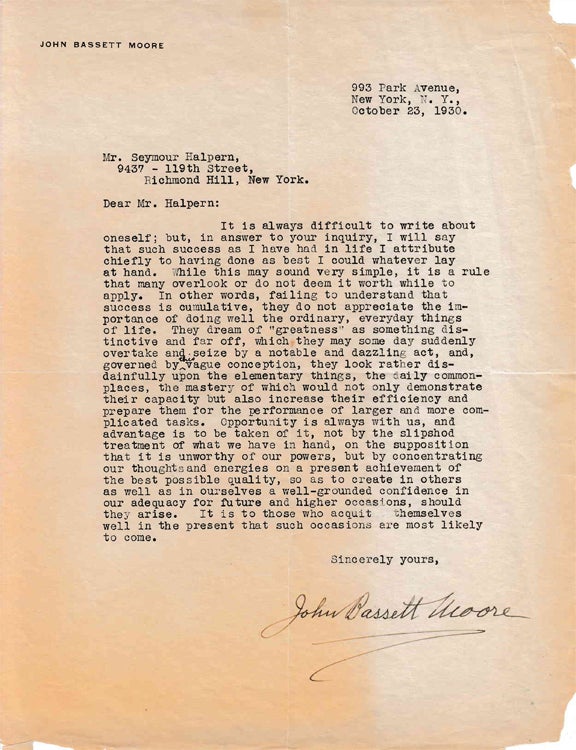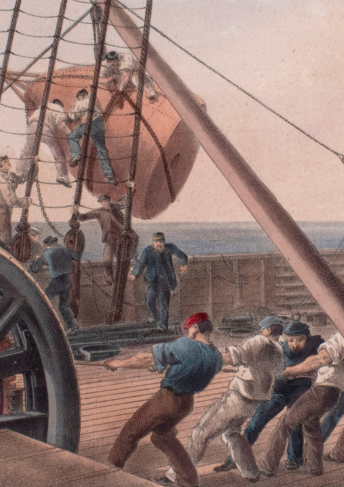
“Success is Cumluative’
Typed letter signed "John Bassett Moore" to "Mr. Halpern" (Seymour Halpern) in response to Halpern's inquiry regaiding the key to success in life.
New York: October 23, 1930.
Price: $250.00
About the item
1 p. on Moore's personal letterhead. 8-1/2 x 11 inches. “Success is Cumluative’. Old folds, minor chipping to fore-edge and tail, minor tear to fore-edge not affecting text, toning, else very good.
Item #310611
An erudite letter from the American lawyer, legal scholar, diplomat, professor, and jurist. Reading in part: “I will say that such success as I have had in life I attribute chiefly to having done as best as I could whatever lay at hand. While this may sound very simple, it is a rule that many overlook or do not deem it worth while to apply. In other words, failing to understand that success is cumulative, they do not appreciate the importance of doing well the ordinary, everyday things of life. They dream of “greatness” as something distinctive and far off, which they may some day suddenly overtake and seize by a notable and dazzling act, and governed by this vague conception, they look rather disdainfully upon the elementary things…”
John Bassett Moore (1860 - 1947) is known for his extensive codification of international law, Moore was a member of the Hague Tribunal and the first American judge to serve on the Permanent Court of International Justice (the "World Court"). He was “… the most prominent American authority on international law during the first half of the twentieth century. His writings on international law remain important contributions to the literature of that field. He was a significant participant in the foreign policy decisions of the McKinley and Roosevelt administrations. When his service with Woodrow Wilson proved unrewarding, Moore became an effective critic of the growth of presidential power in foreign affairs.” (ANB).

